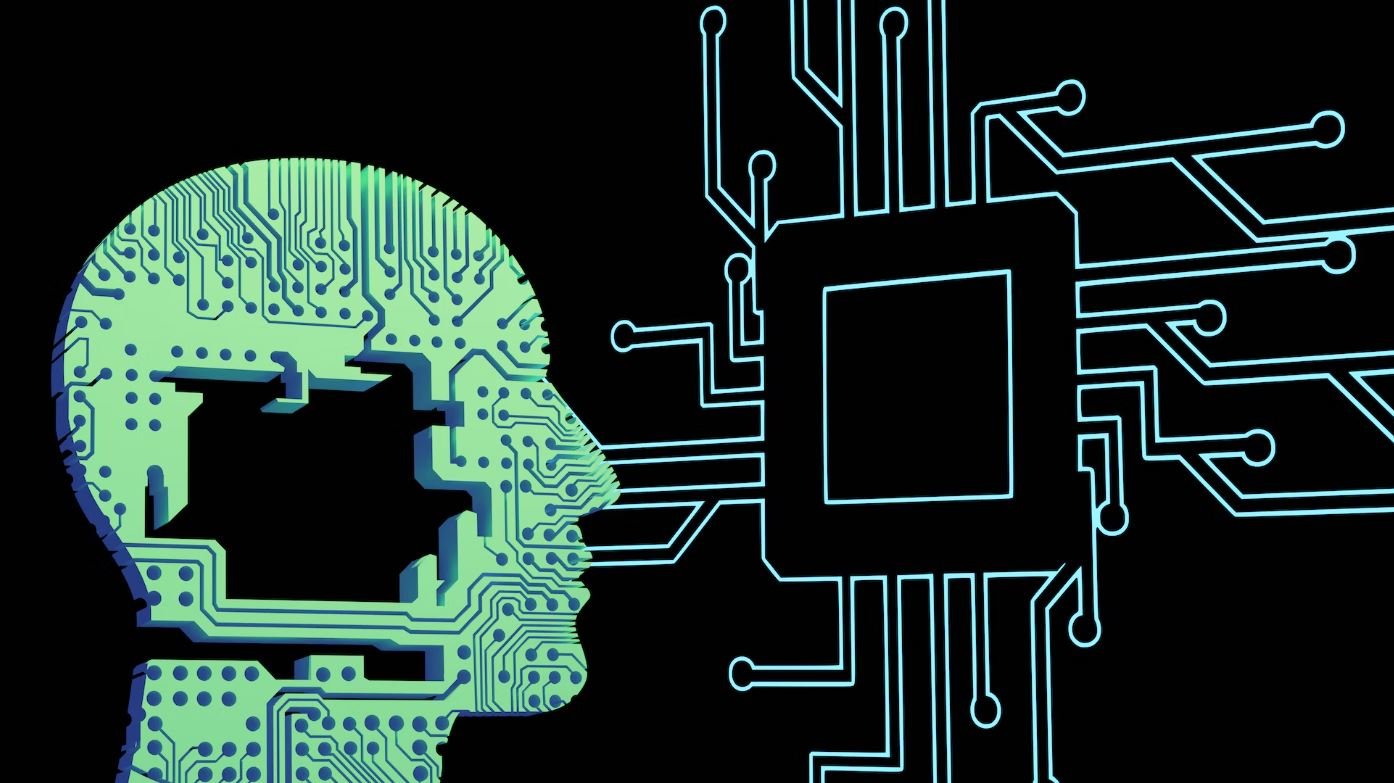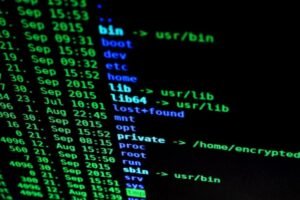Is Deepfake Legal in India?
Deepfake technology, a form of artificial intelligence (AI) that allows for the manipulation and fabrication of audio and visual content, has raised concerns around the world. As the use of deepfakes becomes more prevalent, it is important to understand its legal implications in different countries. In this article, we explore the legal aspects of deepfake technology in India.
Key Takeaways:
- Deepfake technology raises concerns regarding privacy, defamation, and potential misuse of personal data.
- India does not have specific laws that directly address deepfakes, but existing laws can be applied to tackle issues related to deepfake content.
- Creating and sharing deepfake content with the intention to harm or deceive others can attract legal consequences in India.
Understanding the Legality of Deepfake in India
In India, the legal framework surrounding deepfakes is primarily based on existing laws related to privacy, defamation, intellectual property rights, and the IT Act of 2000. While there is no specific law that directly addresses deepfake technology, **creating and disseminating deepfake content with malicious intent** can potentially fall under various legal provisions.
The **Indian Penal Code** (IPC) can be used to address cases of deepfake content that leads to harassment, extortion, or defamation. **Section 500 of the IPC specifically deals with defamation** and provides penalties for damaging someone’s reputation through false statements or imputations.
Deepfakes that involve **misusing a person’s identity or violating their privacy** may also attract legal consequences under the **Information Technology Act**. **Section 66E of the IT Act deals with privacy violations** and states that capturing, publishing, or transmitting the image of a private area of any person without consent can result in imprisonment and fines.
Existing Legal Protections in India
While India lacks specific laws addressing deepfakes, certain existing legal provisions can be extended to tackle the issue. The **Indian Copyright Act** of 1957 protects original works from being copied or manipulated without permission. Deepfake content that infringes on someone’s copyright can be challenged under this act.
Moreover, the **Indian Cyberlaws**, along with the IT Act, can be utilized to address deepfake issues related to **cyberbullying, online harassment, and identity theft**. Sections like **66C (identity theft), 66D (cheating by impersonation), and 67 (publishing or transmitting obscene material)** can be applied depending on the nature of the deepfake content.
Impact of Deepfakes on Elections and Cybersecurity
Deepfakes have the potential to significantly impact elections and cybersecurity in India. The spread of **fake videos and audio clips** impersonating political candidates or spreading misinformation can influence public opinion and election outcomes. It is crucial for authorities to be vigilant and take necessary measures to detect and address deepfake-related threats during election periods.
In the realm of cybersecurity, deepfakes can be used as a tool for **phishing attacks, social engineering, and impersonation**. This emphasizes the need for individuals and organizations to enhance security measures, stay updated with emerging threats, and invest in advanced deepfake detection technologies.
Example Penalties for Deepfake Misuse
| Offense | Penalties |
|---|---|
| Defamation via Deepfake | Imprisonment up to 2 years or a fine or both (under Section 500 of the IPC) |
| Privacy Violation through Deepfake | Imprisonment up to 3 years and/or a fine (under Section 66E of the IT Act) |
| Identity Theft via Deepfake | Imprisonment up to 3 years and/or a fine (under Section 66C of the IT Act) |
Conclusion
While there is no specific legislation in India that directly addresses deepfake technology, existing laws related to privacy, defamation, and intellectual property rights can be applied to tackle issues arising from deepfakes. It is important for individuals, society, and the legal system to stay vigilant and adapt to rapidly evolving technologies to mitigate the potential risks and harm caused by deepfake misuse.

Common Misconceptions
Misconception 1: Deepfake is completely legal in India
One common misconception about deepfake is that it is entirely legal in India. While there are no specific laws addressing deepfake technology, its use can still be considered illegal under existing laws.
- Deepfake can infringe on a person’s right to privacy, as it involves manipulating their likeness without consent.
- Using deepfake for malicious purposes such as defamation or harassment is punishable under Indian laws, including the Indian Penal Code and the Information Technology Act 2000.
- The absence of dedicated legal framework for deepfake doesn’t imply that its use is unrestricted.
Misconception 2: Deepfake can only be used for entertainment purposes
Another common misconception is that deepfake technology is solely used for entertainment purposes, such as creating funny videos or celebrity impersonations. While it is true that deepfake has gained popularity in the entertainment industry, its potential risks go far beyond amusement.
- Deepfake has been misused to spread misinformation and fake news, leading to public distrust and potentially causing social unrest.
- Political manipulation through deepfake videos can undermine the integrity of elections and democratic processes.
- Financial scams and identity theft can be facilitated through deepfake, as fraudsters can use manipulated videos to deceive individuals.
Misconception 3: Deepfake cannot be detected or traced
Many people believe that deepfake technology is so advanced that it is impossible to detect or trace fake videos. This misconception often leads to widespread panic and confusion about the authenticity of online content.
- There are ongoing research and development efforts to create tools and algorithms that can detect deepfake videos based on various indicators and anomalies.
- Digital forensics experts and law enforcement agencies are continuously improving their methods to trace the origins of deepfake videos and identify the individuals responsible for creating and sharing them.
- While it is true that deepfake technology is constantly evolving, so are the techniques used to detect and prevent its misuse.
Misconception 4: Deepfake is a problem that only affects celebrities and public figures
Many people mistakenly believe that deepfake technology is primarily a concern for celebrities and public figures, and that it doesn’t impact the general public. However, the reality is that anyone can become a victim of deepfake manipulation.
- Deepfake videos can be created using publicly available photos and videos, which means that anyone’s identity can be easily exploited.
- Individuals from various walks of life, including ordinary citizens, can be targeted for blackmail, harassment, or reputation damage through deepfake.
- The widespread availability of personal photos and videos on social media platforms amplifies the risk of unauthorized deepfake creations.
Misconception 5: Deepfake is a problem solved solely by technology
Some people believe that deepfake technology can be entirely controlled and mitigated through technological solutions. While technological advancements play a crucial role, deepfake is not a problem that can be solved solely by technology.
- Legal frameworks need to be updated to address deepfake specifically, outlining clear regulations and penalties for its misuse.
- Education and awareness campaigns are necessary to help people recognize and identify deepfake content, empowering them to make informed judgments.
- Collaboration between governments, law enforcement agencies, and tech companies is crucial to combat the challenges posed by deepfake technology.

Introduction
Deepfake technology has gained significant attention in recent years for its potential to create highly realistic videos that manipulate or fabricate images and audio. However, the rise of deepfakes has also raised concerns about the ethical and legal implications surrounding their use. In this article, we examine the legal landscape of deepfakes in India, shedding light on various aspects that contribute to the debate.
Impact of Deepfakes on Society
Deepfakes have the potential to greatly impact society in multiple ways. From misinformation and manipulation to privacy violations, the consequences are far-reaching. The table below highlights some key societal impacts of deepfakes.
| Impact | Description |
|---|---|
| Political Misinformation | Deepfakes can be used to spread false information or manipulate elections through doctored videos of politicians. |
| Cyberbullying | Individuals can be targeted and harassed through the creation and dissemination of deepfakes portraying them in compromising or defamatory situations. |
| Reputation Damage | Deepfakes can tarnish the reputation of individuals or organizations by creating believable fake content that appears genuine. |
Existing Legal Framework in India
India has various laws and regulations that can be applied to address deepfake-related issues. The following table provides an overview of existing legal provisions in India.
| Legal Framework | Details |
|---|---|
| Indian Penal Code (IPC) | Sections 415 and 499 of the IPC cover offenses related to cheating by impersonation and defamation, which can be applicable to deepfake cases. |
| Information Technology Act, 2000 | Section 66D of the IT Act deals with impersonation using a computer resource, and Section 66E involves violation of privacy by capturing, publishing, or distributing images or videos containing sexually explicit content without consent. |
| Civil Laws | Victims can seek remedies under civil laws, including defamation, privacy laws, and breach of confidentiality. |
Challenges in Enforcing Deepfake Laws
Despite the legal provisions, enforcing laws against deepfakes poses several challenges. These difficulties can hinder effective action against the perpetrators. The table below outlines some of the challenges faced in enforcing deepfake laws in India.
| Challenge | Description |
|---|---|
| Technological Advancements | As deepfake technology evolves, it becomes increasingly difficult to detect and differentiate between genuine and fake content. |
| Anonymity and Jurisdiction | Perpetrators often hide behind the anonymity of the internet, making it challenging to identify and bring them to justice. |
| Limited Awareness | Many people are unaware of the existence and potential harm caused by deepfakes, leading to a lack of reporting and legal action. |
Proposed Amendments and Solutions
To address the challenges posed by deepfakes, policymakers and experts have proposed various amendments and solutions. The following table presents some notable proposals.
| Proposed Amendments/Solutions | Details |
|---|---|
| Specific Deepfake Legislation | Suggestions have been made to enact separate legislation specifically targeting deepfake creation, distribution, and misuse. |
| Improved Technological Solutions | The development of advanced tools and algorithms to detect and combat deepfakes has been proposed as a way to address the challenges posed by this technology. |
| Education and Awareness Campaigns | Initiatives to inform and educate the public about deepfake technology, its implications, and how to identify and report deepfakes can empower individuals to protect themselves. |
International Approaches
Various countries have started implementing laws or regulations specifically targeting deepfakes. By examining international approaches, India can gain insights into effective measures against this emerging threat. The table below highlights some notable global approaches.
| Country | Approach |
|---|---|
| USA | Several states have passed laws criminalizing malicious deepfake creation and distribution. |
| Singapore | The Protection from Online Falsehoods and Manipulation Act criminalizes the creation or dissemination of fake news, including deepfakes. |
| South Korea | Legislation has been introduced to ban deepfakes during elections to prevent the spread of misinformation. |
Prosecution of Deepfake Cases in India
Although deepfake cases are relatively new in India, some instances have already been investigated and prosecuted. The following table presents a few notable deepfake cases in India.
| Case | Summary |
|---|---|
| Anu Aggarwal Case | Anu Aggarwal, a Bollywood actress, faced online harassment due to a fake pornographic video that circulated online, leading to her filing a complaint under various sections of the IPC. |
| Rajdeep Sardesai Case | A deepfake video of prominent Indian journalist Rajdeep Sardesai surfaced online, prompting him to take legal action for defamation and spreading false news. |
| Hrithik Roshan Case | A fake audio clip, falsely claiming to feature Bollywood actor Hrithik Roshan, circulated online, creating a scandal that prompted him to issue a statement denying its authenticity. |
Conclusion
The legal complexities surrounding deepfakes are a growing concern globally, and India is no exception. While existing laws can be applied in deepfake-related cases, challenges remain in enforcement and punishment due to technological advancements, anonymity, and limited awareness. To combat deepfake threats effectively, a combination of legal amendments, technological solutions, and awareness campaigns is necessary. By learning from international approaches and prosecuting deepfake cases, India can take a proactive role in addressing the deepfake dilemma and safeguarding society from the potential harms posed by these sophisticated manipulations.
Frequently Asked Questions
What is deepfake technology?
Deepfake technology is a technique that uses artificial intelligence (AI) to create realistic manipulated videos or images by superimposing existing media onto source media, thereby generating deceptive content.
Are deepfakes legal in India?
As of now, deepfakes are not explicitly addressed by Indian laws, and there are no specific regulations to deal with the creation, distribution, or malicious use of deepfake content in India.
Are there any laws in India that can be used to prosecute deepfake creators or distributors?
While there are no specific laws concerning deepfakes in India, existing laws such as the Indian Penal Code (IPC) and the Information Technology Act, 2000 can be used to prosecute individuals involved in producing or disseminating deepfake content if it violates other legal provisions.
What legal consequences can creators of malicious deepfakes face in India?
The creators of malicious deepfakes in India may be held liable under various sections of the Indian Penal Code (IPC) such as defamation, forgery, impersonation, or under provisions related to privacy rights, depending on the specific circumstances of the case.
Can deepfake videos be used as evidence in Indian courts?
Deepfake videos may be used as evidence in Indian courts, provided they meet the admissibility criteria laid out in the Indian Evidence Act, 1872. The authenticity, reliability, and integrity of the deepfake video would need to be established to ensure its acceptance as evidence.
What steps are being taken to regulate deepfake technology in India?
The Government of India is actively exploring the need for regulations specifically targeting deepfake technology and its potential misuse. However, as of now, no specific laws or regulations exist in India pertaining solely to deepfakes.
What are the potential risks associated with deepfakes in India?
Deepfakes pose several risks in India, including the potential to influence public opinion, damage reputations, spread false information, violate privacy rights, and facilitate cyberbullying or harassment. These risks necessitate the need for appropriate regulations and preventive measures.
What are some preventive measures individuals can take to protect themselves from deepfake attacks?
Individuals can take several preventive measures to protect themselves from deepfake attacks, such as being cautious while sharing personal information online, using privacy settings on social media platforms, being skeptical of suspicious or unverified videos, and relying on credible sources of information.
What actions can individuals take if they become victims of deepfake-related harm?
If individuals become victims of deepfake-related harm in India, they can report such incidents to relevant law enforcement agencies, file complaints with the cybercrime cells, or seek legal advice to explore available remedies under existing laws.
Where can individuals learn more about deepfakes and their legal implications?
Individuals can consult legal experts, refer to official government websites, and explore resources from reputable organizations specializing in technology law or cybersecurity to learn more about deepfakes and their legal implications in India.




